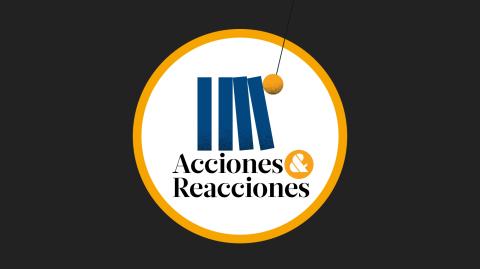Lectura 5:00 min
Miracle products
Last year, Mexicos equivalent of the FDA, known as the Federal Commission for the Protection Against Health Risks (Cofepris for short), came up with a list of 250 miracle products that would be banned from the web and the airwaves for the simple reason that theyre scams.
The initial reaction to such a watchful eye was, gee, thats great, because not only do those products not cure you, but they can actually make you sicker. The problem is, though, that while Cofepris lists the banned products on its web page, it fails to say when they will be actually removed from the shelves, from online ads of from TV spots.
If you corner Cofepris boss Miguel Ángel Toscano and ask him why nothing much has been done to remove those admittedly risky products from the market, or why it will apparently take months and even years to do so, his typically bureaucratic response will be that his budget doesnt allow him to significantly boost the ranks of Cofepris manpower.
Clearly, its not enough for Cofepris to blow the whistle on risky products like Prostamax and Prostaliv, which claim to cure prostate ailments, and others like Cold Heat Extreme, Malungay, Purifhígado, Skinny Shot and many others that falsely claim to cure or control everything from diabetes to liver dysfunction to HIV.
But its not just so-called miracle products. There is also the problem of alleged generics. There are bona fide generics that have bioequivalency, which means they have the same active ingredient as patent medicine, and then there are sugar-coated generics that lack an active ingredient ans are thus totally useless. The point is that the government does not regulate fake generics, and thus fails to do its duty in protecting the consumer.
All this comes to the forefront of health-related issues because this week, Google is close to settling a U.S. criminal investigation into allegations it made hundreds of millions of dollars by accepting ads from online pharmacies that break U.S. laws.
The Internet giant disclosed in a cryptic regulatory filing earlier this week that it was setting aside US$500 million to potentially resolve a case with the Justice Department. A payment of that size would be among the highest penalties paid by companies in disputes with the U.S. government. Google gave few details in its filing about the probe, saying only that it involved the use of Google advertising by certain advertisers.
The U.S. federal probe centers on whether Google knowingly accepted ads from online pharmacies, based in Canada and elsewhere, that violated U.S. laws. At this stage, neither the company nor the Justice Department want to talk about it. But, indications are that Google will have to pay through its teeth, setting a precedent that Mexican authorities would be wise to leverage.
It has been established that search engines can be liable if they are found to be profiting from illegal activity. In December 2007, the three largest Internet companies, Google, Microsoft and Yahoo agreed to pay a combined US$31.5 million fine to settle civil allegations brought by the Justice Department that they had accepted ads from illegal gambling sites. Sadly, some of those sites continue to operate virtually risk-free in Mexico.
There are scores of websites that offer to sell prescription drugs. Some violate U.S. laws by selling counterfeit or expired medicines or dispensing without a valid doctors prescription.
In Mexico, a law that went into effect this year specifies that antibiotics cannot be sold without a valid (i.e. verifiable) prescription. Again, its very difficult to enforce for lack of manpower and also because of widespread corruption. The pharmacists get around the requirement by hiring med students to issue prescriptions for a nominal fee of US$2.
At least one issue being probed in Googles case is the extent to which the company, in its fierce quest for online ad profits, knowingly turned a blind eye to the alleged illicit activities of some of its advertisers and how much executives knew. The investigation has been conducted by the U.S. Attorneys Office and the FDA, among others.
Google generated nearly US$30 billion in total ad revenue in 2010, largely from its AdWords system. AdWords helped revolutionize online advertising, offering marketers the chance to bid to display their ads when people searched for certain keywords on the Google search engine. An advertiser only pays when a user clicks on the ad.
While there are signs the U.S. government is serious about cracking down on illegal online pharmacies, the Mexican government is not, even though as the Googles case will surely prove there are huge revenues to be secured from fines, penalties and other sanctions, not to mention the consumers protection.











